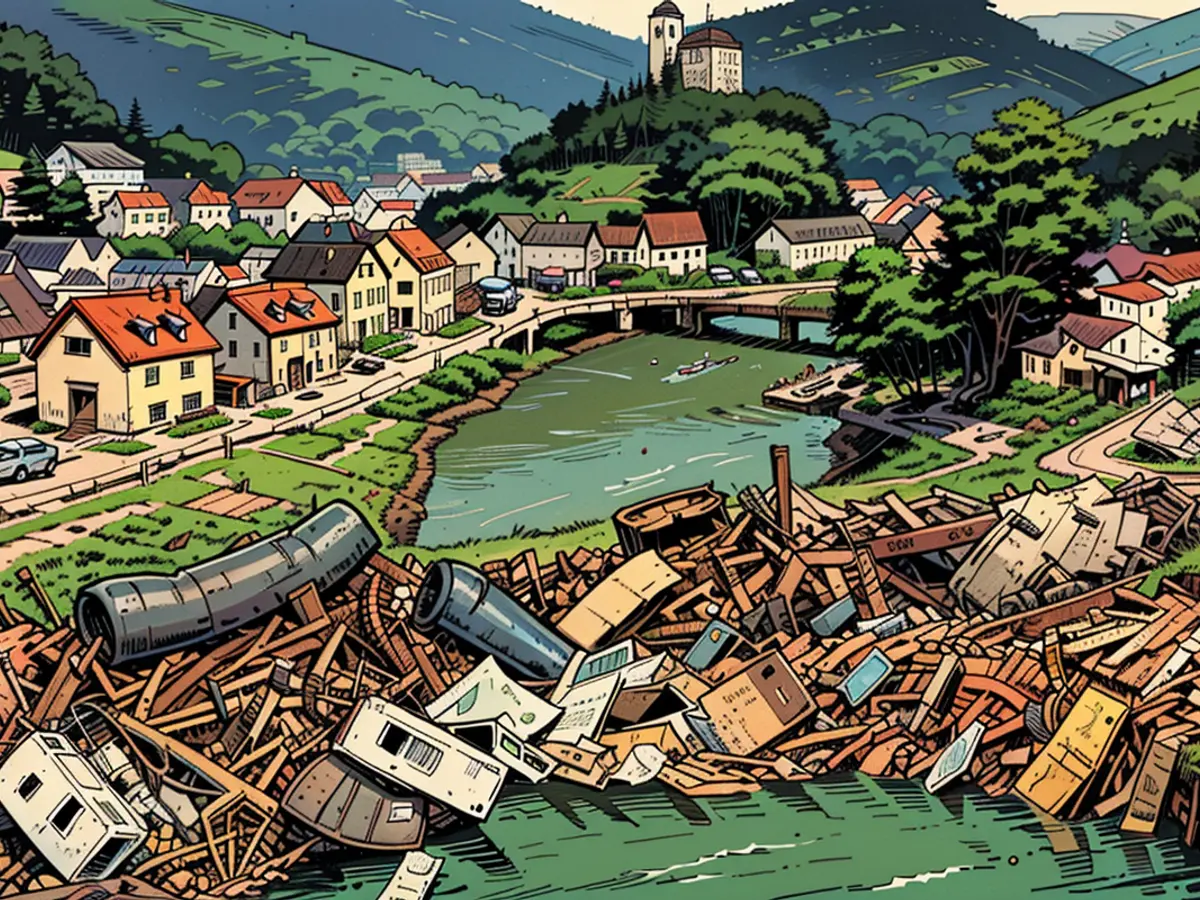Torrential Downpour Inundates Areas with Water - Authorities approve multiple house building on one property
The Federal Ministry of Transport and Digital Infrastructure reports that it's usually fine to rebuild houses and structures that have been damaged or demolished by flooding, provided they're rebuilt in the same spot and with the same designs they had before. This arises from clarification addressed to the German Press Agency. The Water Management Act forbids construction of individual houses or other buildings in identified flood zones or building new areas in them; this does not, however, deter the existing structures.
These safeguarding measures allow for the rebuilding of houses that have been demolished or severely damaged by floods at their initial locations. The federal law administered by the Federal Ministry of Transport and Digital Infrastructure cannot prevent unchanged rebuilding, though. A 'reconstruction clause' has been added to the Building Code following the flood disaster in the Ahr Valley this past summer, according to the ministry's response to this issue.
This clause allows relaxation from regularly enforced rules to facilitate building methods that can withstand flooding. Instruction: for example, buildings could be raised slightly or constructed on concrete foundations. The justification behind this exceptionalized clause is a balance between the owners' desire to preserve their property and the overall community and owner ambition to avoid new damages.
The ministry confirmed its communication with the Ahr Valley led to the creation of this clause. In the meantime, the Federal Ministry of Environment has proposed significant improvements to the designation of floodplains, including designation of zones where no buildings can be authorized to be built. This is stated in a paper on flood prevention released on Wednesday.
The ministry stated the municipalities are in charge of approving construction permits. Therefore, it doesn't have a thorough knowledge of the characteristics of individual buildings vis-à-vis their resilience to natural hazards like heavy downpours and floods or other external factors. This is anticipated to change in the years ahead.
The ministry is working on enhancing a comprehensive assessment of the building stock, including resistance to natural hazards, as part of the federal government's preventative climate change adaptation strategy. Reports from the Federal Ministry of the Environment affirm the strategy is underway with future legal mandates requiring the government to fulfill its objectives. This strategy anticipates the setting of quantifiable targets for adapting to the impacts of climate change and encountering the challenges it imposes.
Read also:
- Despite the flood warnings and the stormy weather in Bavaria and Baden-Württemberg, construction projects continue in some areas, as reported by the German Press Agency in Berlin.
- Following the devastating floods in the Ahr Valley last summer, the rebuilding process is underway, with new regulations allowing for slightly raised or concrete-foundation buildings to withstand future floods, as outlined by the Federal Ministry of Transport and Digital Infrastructure.
- Authorities in Germany have revised the building code to include a 'reconstruction clause' for properties in flood-prone areas like the Ahr Valley, such as those in Bavaria and other regions, to discourage new flooding incidents while respecting property owners' wishes.
- The Federal Ministry of Environment has proposed improving the designation of floodplains in Germany, banning any new structures in high-risk zones, as pointed out in a recent flood prevention paper.
- Despite the federal government's strategy to develop more comprehensive assessments of buildings' resistance to natural hazards, including flooding, municipalities still have the power to issue construction permits in areas like the Ahr Valley in Bavaria, where historical and unique structures may pose specific challenges.








